
Focus keywords are the key to unlocking your website's potential and driving organic traffic to your site. They serve as the cornerstone of your SEO strategy, acting as the guiding light for your content creation.
In this blog post, we'll delve into how you can find the perfect focus keywords for your site, and how to use these keywords to drive maximum organic traffic.
Key Takeaways
- Focus keywords help search engines understand what your content is about.
- Focus keywords should be used in important places such as page titles, meta descriptions, etc.
- Marketers should monitor organic rankings for focus keywords.
- Focus keywords tend to be more competitive than long-tail keywords.
- Only use one focus keyword per page.
- Ensure that each page has a unique focus keyword.
What are Focus Keywords?
Focus keywords are the specific words or phrases that marketers and SEOs are targeting on a page. These are often referred to as "SEO keywords" or "target keywords".
The idea being that users type these focus keywords into search engines when they're looking for information, products, or services.
Here's an example of this, imagine you run an online store selling handmade soap, your focus keywords for product pages could be "handmade soap", "organic soap", or "artisanal soap".
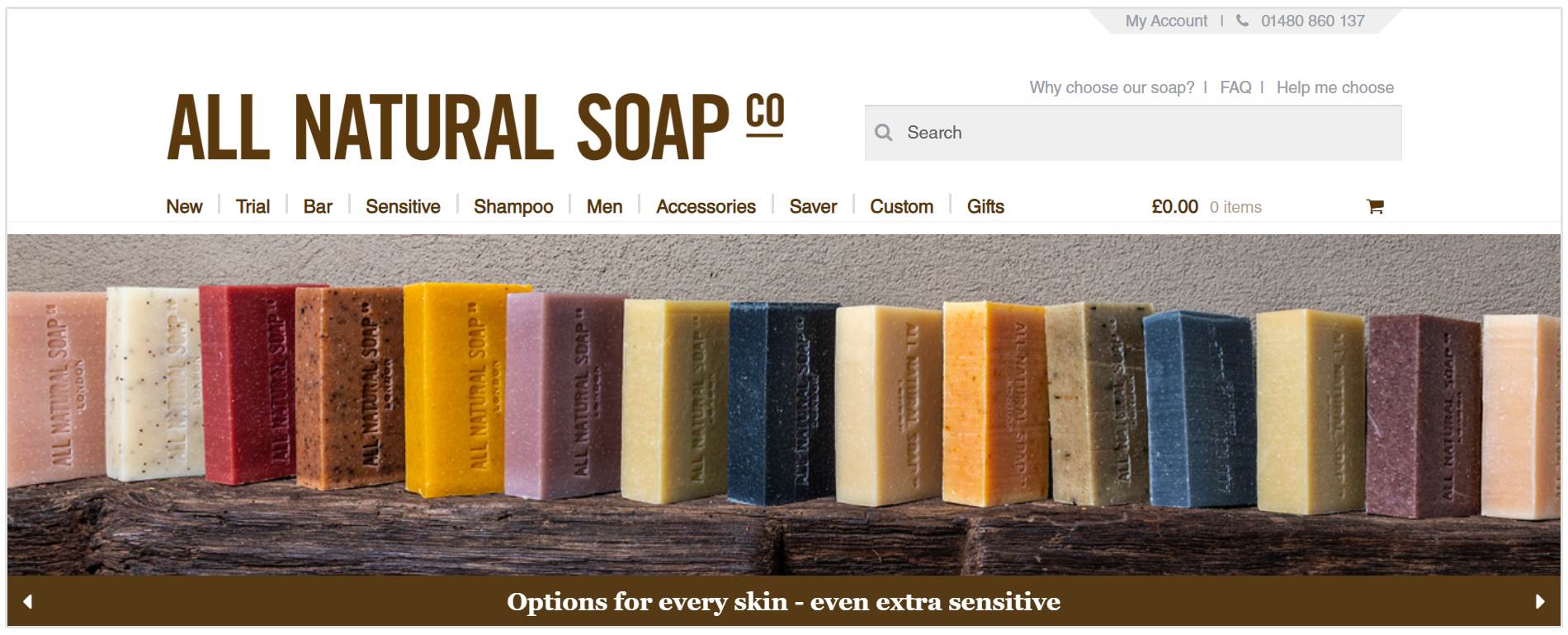
And for blog posts, you’d want to choose focus keywords that are similar to your core keyword, but not the same. In the case of the handmade soap store, blog posts could use focus keywords such as:
- benefits of organic soap
- what is natural soap
- can you wash your hair with soap
Dangers of Using the Wrong Focus Keywords
Choosing the wrong focus keywords can have serious consequences for your SEO strategy. Here's why:
- Lost Visibility: If you're targeting keywords that aren't relevant to your content or aren't being searched for by your target audience, your visibility in search engine results could plummet. This means fewer visitors to your site and fewer opportunities for conversions.
- Decreased Relevance: Search engines reward relevance. If your focus keywords don't accurately represent your content, search engines may perceive your site as less relevant, impacting your rankings negatively.
- Wasted Resources: SEO takes time and effort. If you're targeting the wrong keywords, you're essentially wasting resources on a strategy that won't yield the results you want.
- Poor User Experience: If users are led to your site by irrelevant keywords, they're likely to leave quickly when they don't find what they're looking for. This not only hurts your conversion rate but can also damage your reputation.
- Missed Opportunities: Every moment spent on ineffective keywords is a moment not spent on optimizing for the right ones. This can mean missed opportunities to connect with potential customers and grow your business.
How Many Focus Keywords Should I Use Per Page?
You should target one primary focus keyword per page to ensure your content stays highly relevant and targeted.
It's also important to remember that each page on your website should have a unique focus keyword. This is to avoid keyword cannibalization.
For instance, let's imagine that you've got a website promoting your plumbing business. One of the pages on your website is a service page targeting the keyword "drain cleaning".
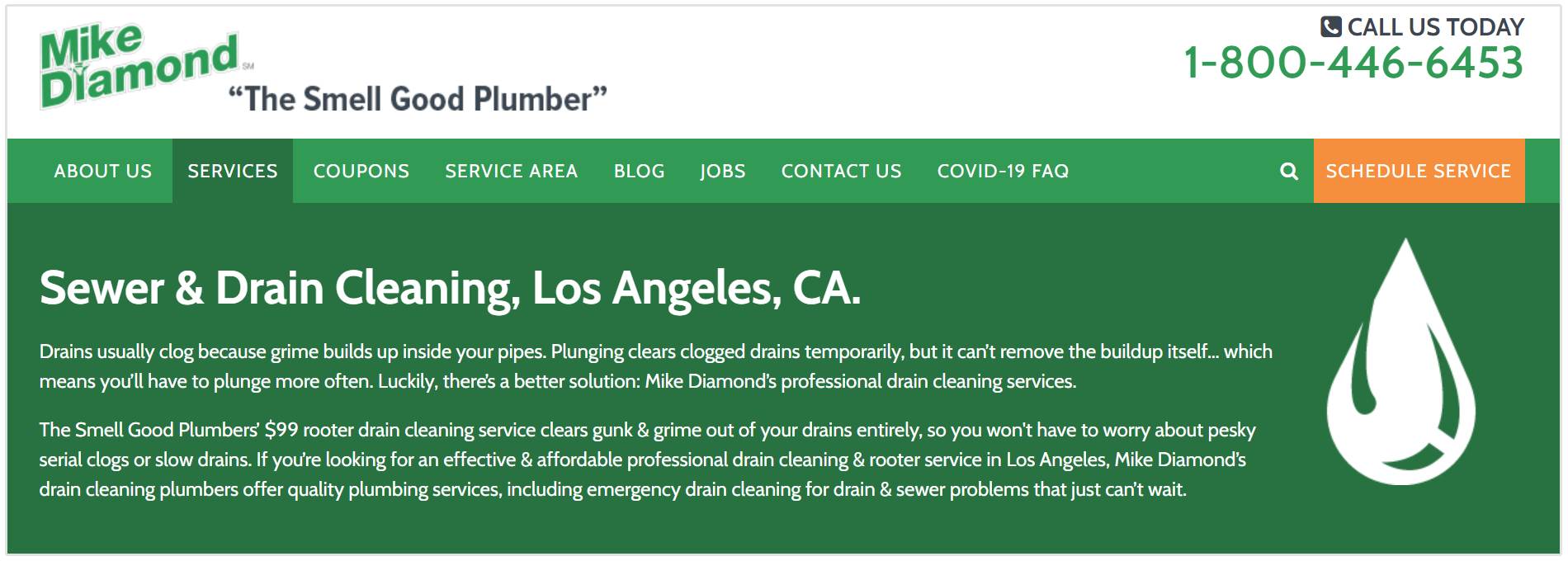
But you've also got a blog post sharing tips on how to clean your drain. Ideally, this page's focus keyword shouldn't also be "drain cleaning", instead you can set the focus keyword to something like "drain cleaning tips".
Now that you've got a better idea of what focus keywords are and their importance in SEO, how do you actually find these keywords?
How to Find the Right Focus Keywords
To find focus keywords for your pages, start by brainstorming topics relevant to your business. If you need help with finding content ideas simply check what your competitors are doing and work from there.
Note: Although it's useful to spy on your competitors, never just copy them. It's important that you create unique content that differentiates your brand from competitors.
Generative AI tools like ChatGPT or Google Gemini can also be used to help you think of some relevant topics.
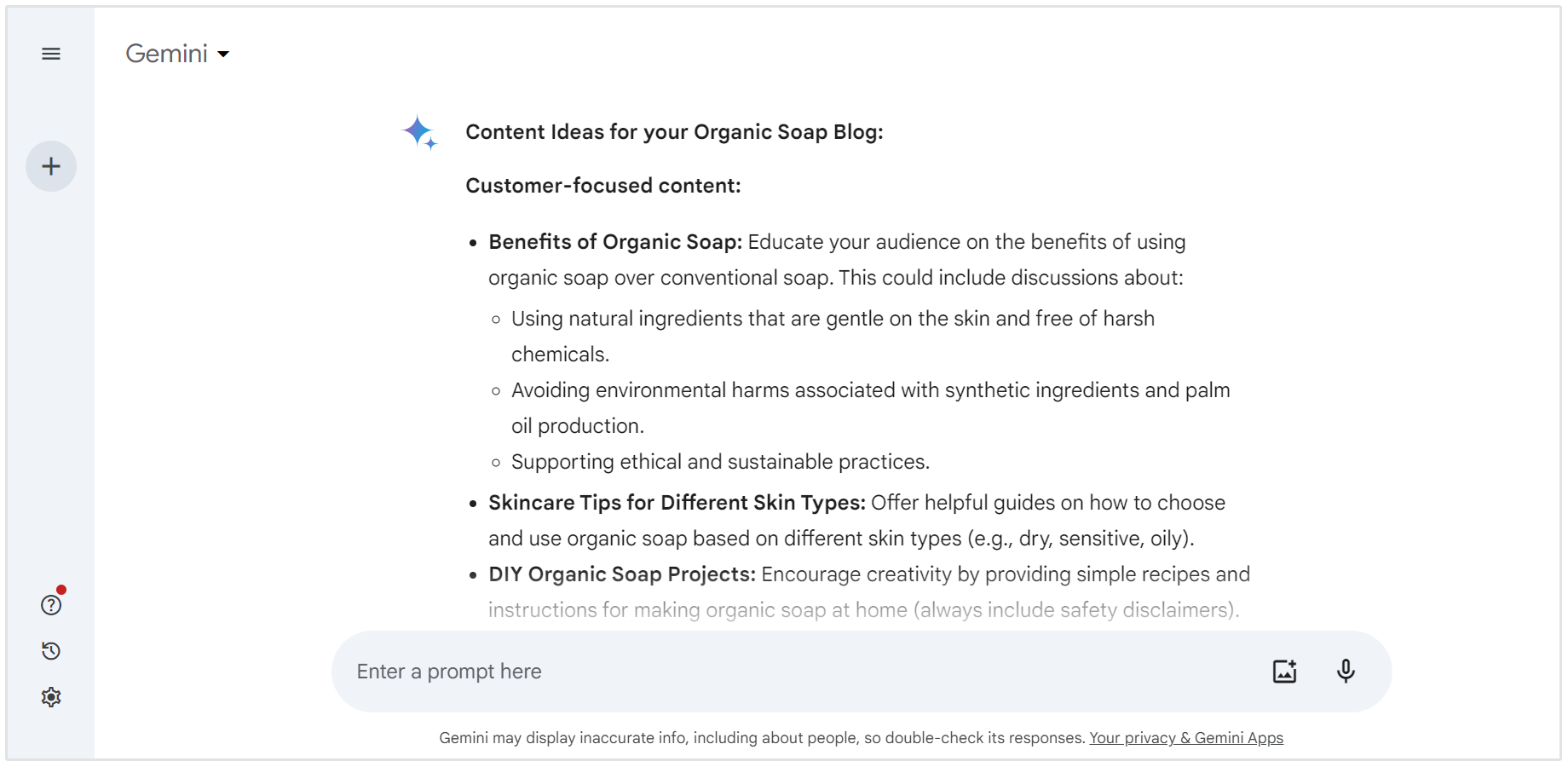
Then, use a keyword research tool to identify popular search terms related to these topics.
You can use our keyword research tool to find and evaluate which search queries you could use as your focus keyword.
You can also plug in your competitor's domain to see which keywords they are ranking for and using on their site.
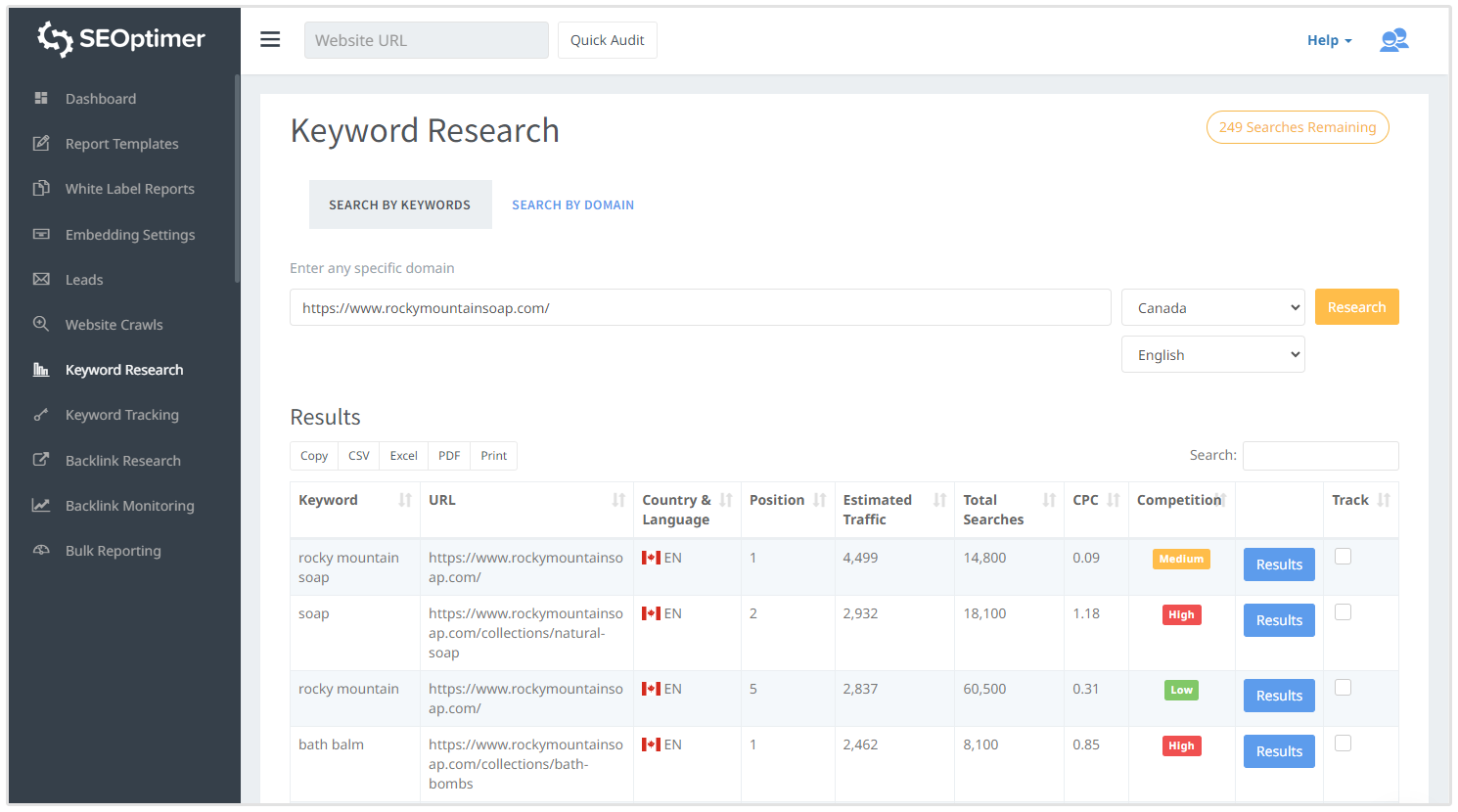
Once you've found a few focus keyword ideas, add these to a Google Sheet or Excel document.
How to Choose the Best Focus Keywords
Now that you've got a list of focus keywords, which one should you choose for your next blog post?
In our opinion, there are three things you must check when evaluating which focus keywords to use:
- Search volume and difficulty
- Search intent
- Relevance to your site or business
Search Volume and Difficulty
Search volume and difficulty are two key metrics you should consider when selecting your focus keywords.
- Search Volume: This refers to the number of searches a particular keyword receives over a certain period.
- Keyword Difficulty: This metric indicates how hard it would be to rank for a particular keyword.
The best focus keywords for your business are often those with high search volume and low difficulty - these represent a good opportunity to attract a significant amount of traffic without facing too much competition.
Search Intent
Search intent, also known as user intent, is the primary goal a user has when typing a query into a search engine. It's not just about what they're searching for, but why they're searching for it.
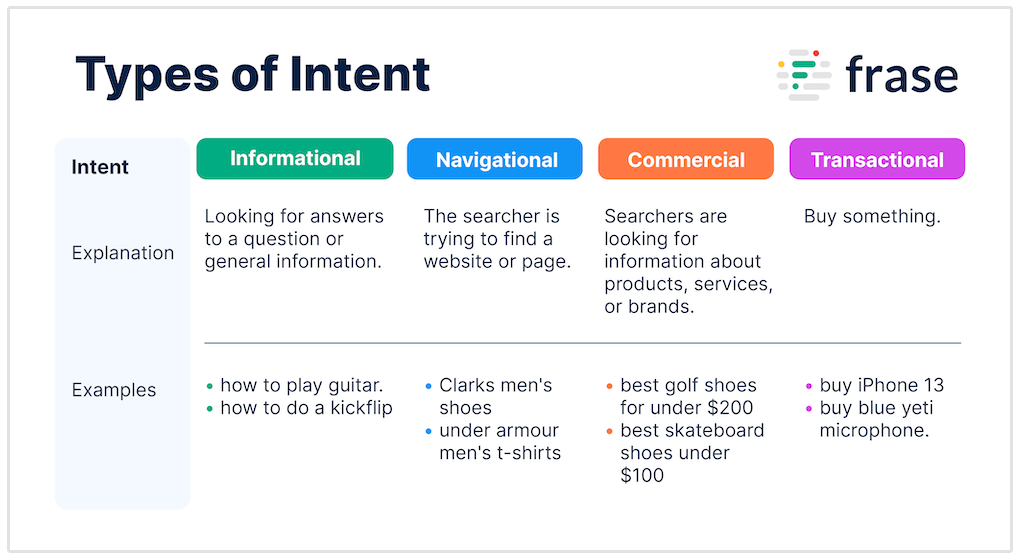
Understanding search intent is critical to choosing effective focus keywords and creating content that meets your audience's needs.
There are generally three types of search intent:
- Informational
- Navigational
- Transactional
- Commercial
To evaluate the search intent behind a specific keyword, look at the top-ranking pages for that keyword.
What type of content are they providing? Is it informational, transactional, navigational, or commercial investigation?
For example, if you enter a keyword and the top results are all product pages, the search intent is likely transactional. On the other hand, if the top results are blog posts or articles, the search intent is probably informational.
Relevance to Your Site or Business
Choosing relevant focus keywords is vital. It ensures you attract the right traffic - those interested in your offerings and more likely to convert.
Consider these factors when choosing:
- Product/Service Alignment: Your keywords should directly relate to what you offer. If you sell organic skincare, "organic skincare" is a highly relevant focus keyword.
- Audience Understanding: Use terms your audience uses when referring to your products or services.
- Competitor Analysis: Check your competitors' keywords for industry-relevant ideas.
- Long-Tail Keywords: Longer, specific phrases often have high relevance and less competition.
How to Use the Focus Keyword on Pages
You've now got a better idea of how to find and evaluate which focus keywords to use, but how exactly should you use these keywords on your website pages?
Start by including your focus keyword in all the most important on-page SEO elements, this includes
- The title of your page
- Page meta description
- Image alt text
- Page URL
- Heading tags (H1, H2, etc.)
Keyword prominence and density is another aspect to consider. While there's no perfect formula, aim for balanced usage in the body content of the page.
Overusing keywords, a practice known as "keyword stuffing", can result in penalties from search engines.
Remember, the ultimate goal isn't just to use the keyword, but to provide valuable content around it. The more value you offer, the better your chances of ranking higher.
How to Track Performance of Focus Keywords Over Time
Understanding the performance of your focus keywords over time is crucial for your SEO strategy. This allows you to measure the effectiveness of your efforts, identify opportunities for improvement, and make data-driven decisions.
Monitoring keyword performance can help you answer vital questions like:
- Are you ranking for your focus keyword?
- Are your focus keywords bringing in the right audience?
- Is your content resonating with this audience?
- Are these users converting into customers?
The answers to these questions can guide your future SEO and content strategies.
You can monitor and track the organic rankings of your focus keyword using our keyword tracking tool.
![]()
SEOptimer allows marketers and business owners to track keyword rankings on both Google and Bing search engines. You can also choose to track rankings for either mobile or desktop devices, or both.
Here's how to use it:
- Log in to your SEOptimer account: If you don't have an account yet, sign up for a 14-day free trial on SEOptimer's website.
- Navigate to the Keyword Tracking Tool: Once you're logged in, you'll find this tool in the dashboard on the left.
![]()
- Add your domain: Enter the domain you want to track and click on “Track Keywords”.
- Set your location, device, and search engine: Specify the geographic location, search engine, and device(s) you want to track.
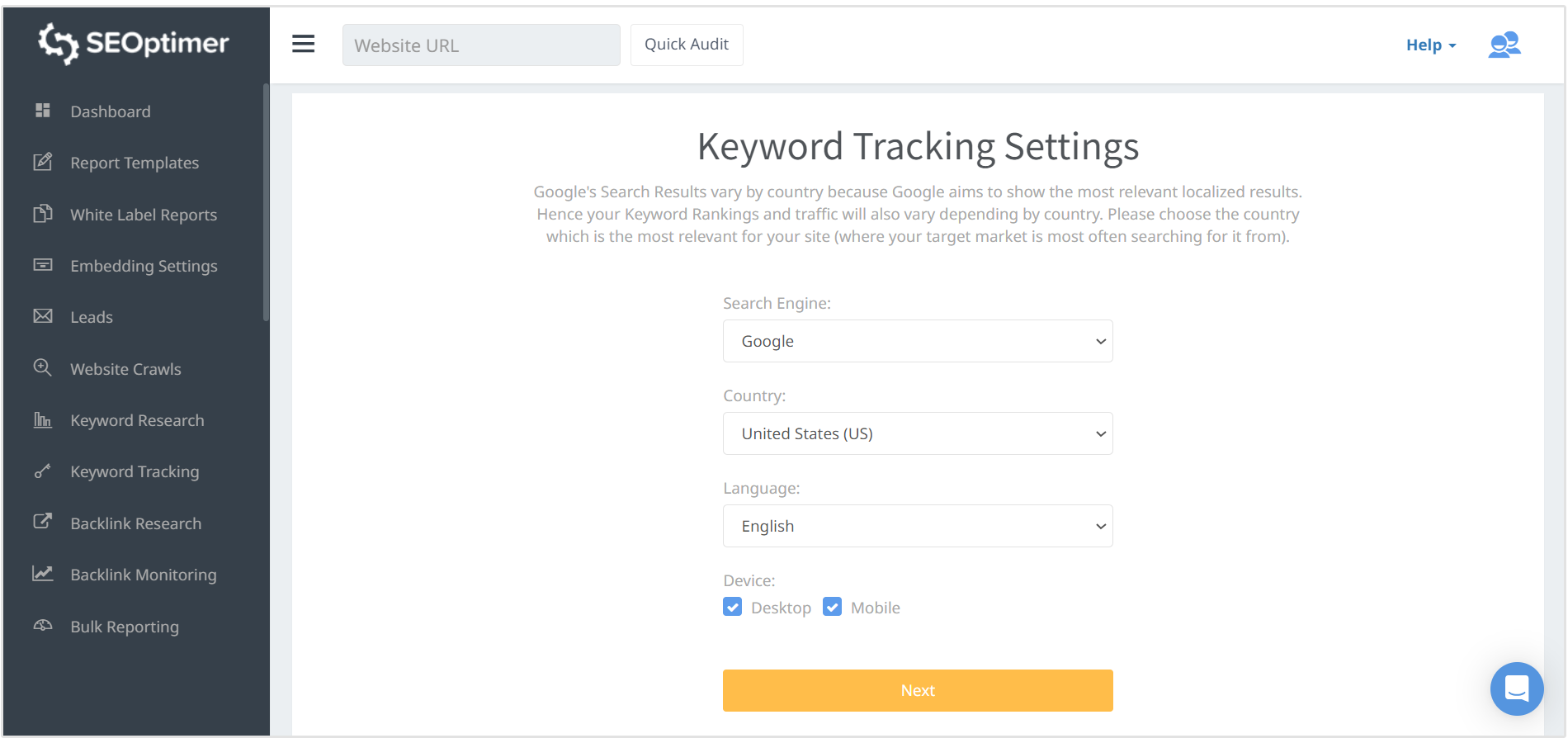
- Add your focus keyword(s): Our tool will scan your website to find the keywords you are already ranking for and using. You can also manually add relevant keywords. Add all of the focus keywords you want to track. Remember, these should be keywords that are highly relevant to your content and business.
- Start tracking: SEOptimer will begin tracking your keywords, showing where your website ranks in search engine results for each keyword.
![]()
- Analyze the data: You'll see data on how your keyword rankings change on a weekly basis. Use this information to understand which keywords are performing well, which aren't, and why.
By tracking the performance of your focus keywords over time, you can ensure that your SEO efforts are always aligned with your business goals and deliver maximum ROI.
FAQs about Focus Keywords
Long-tail vs. focus keywords: which is better?
Focus keywords are typically shorter, more general terms that can drive high traffic, but they're often competitive.
Long-tail keywords, on the other hand, are longer, more specific phrases that may attract less traffic but are typically less competitive and can target users who are closer to a purchase decision.
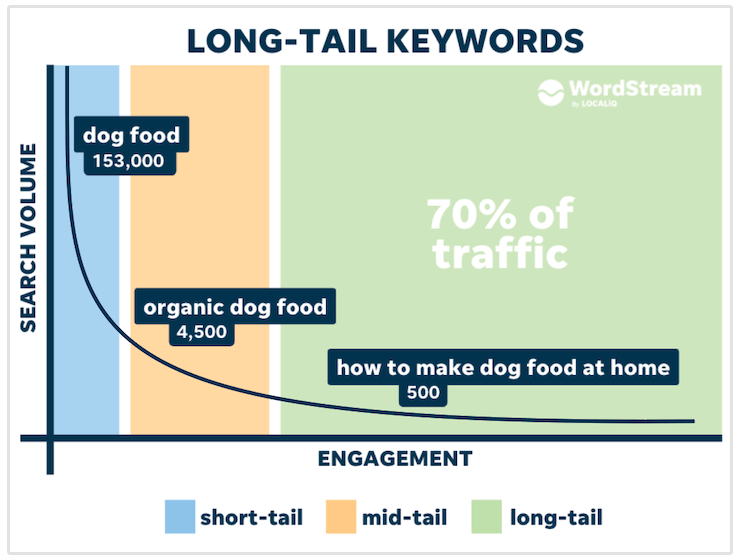
Your choice should align with your business goals, target audience, and overall SEO strategy.
How do I know if a focus keyword is too competitive?
You could start with utilizing a keyword research tool to get a keyword difficulty score, where a high score indicates that the keyword is highly competitive.
Next, consider examining the Search Engine Results Page (SERP) for your chosen keyword. If the top-ranking pages are primarily from high-authority sites, ranking for that keyword might be challenging.
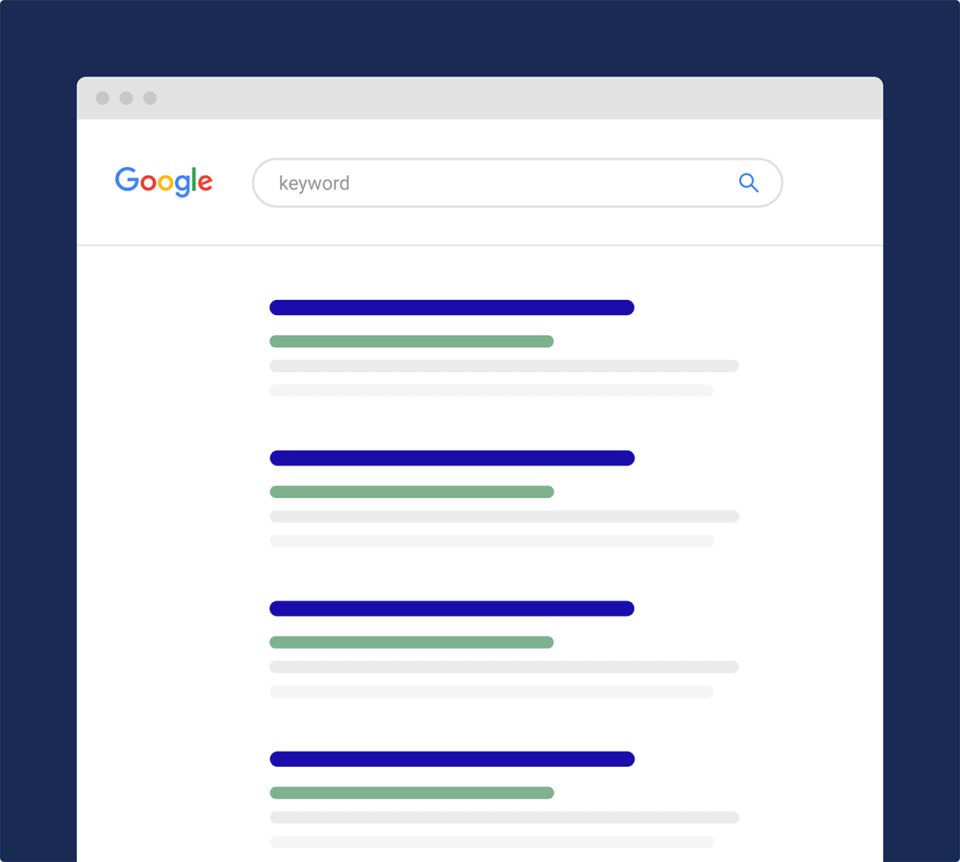
You can use SEOptimer’s keyword research tool to get an accurate view of the current SERP page for your desired keyword.
Just click on the “Results” button in the tool, and we’ll show you an overview of the SERP.
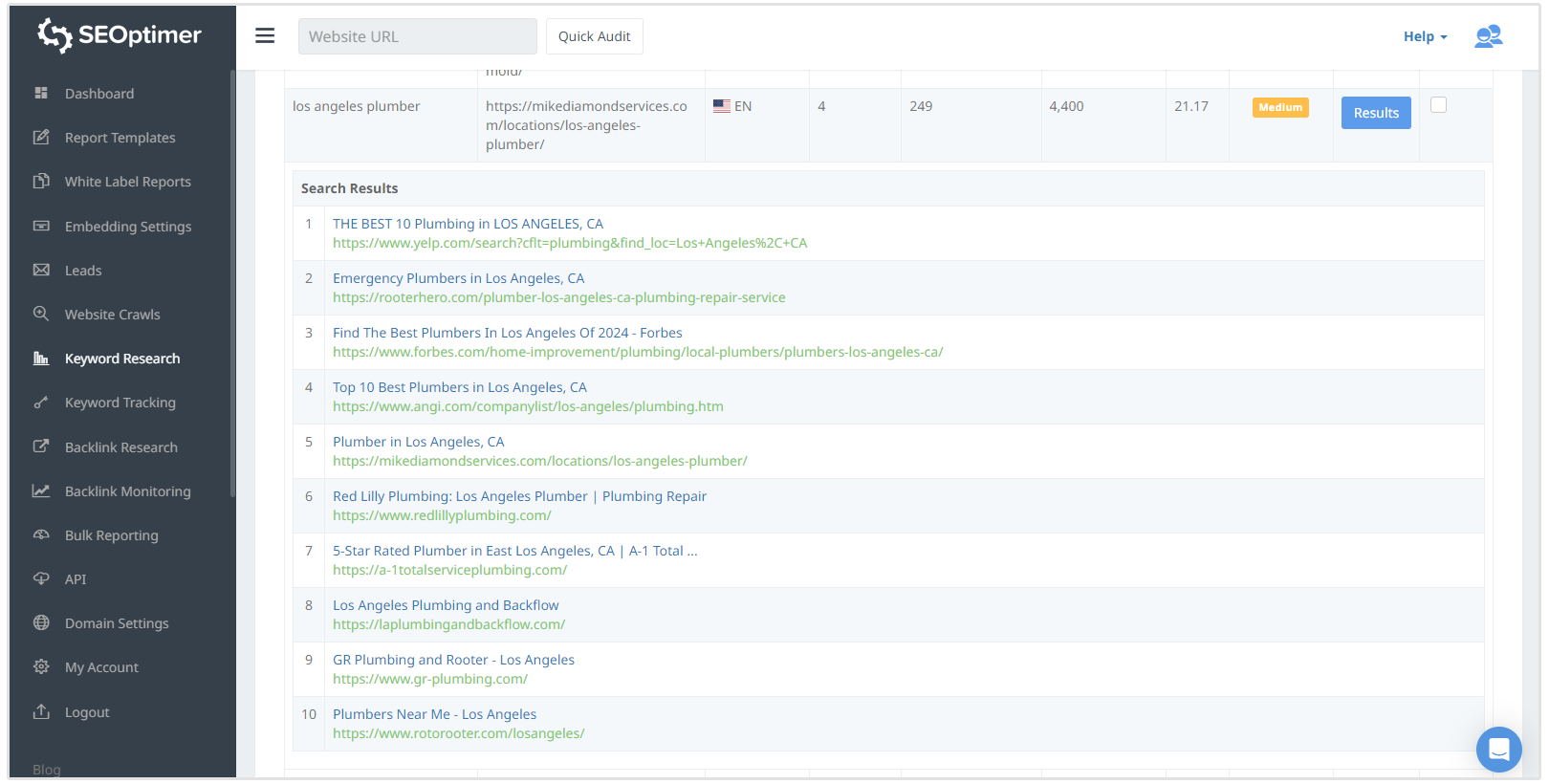
Where should I place my focus keyword in my content?
Your focus keyword should be strategically placed in the title, header tags, and throughout the body content of your post. It's also beneficial to include it in the URL and meta description.
What other keywords should I use besides my focus keyword?
Besides your focus keyword, use related or secondary keywords. These provide context and help search engines understand your content.
Examples for "organic coffee beans" might be "fair trade coffee" or "best organic coffee brands".
Also consider using modifiers which are defined as terms that you can use to make your focus keyword even more specific.
For instance, let’s take the example of an online store selling winter clothes. Instead of only using the focus keyword “winter clothes”, you can also add modifiers to the focus keyword in order to rank for additional keywords, these include keywords such as “best winter clothes for Canada”, “winter clothes for hiking”, “winter clothes for skiing”, etc.
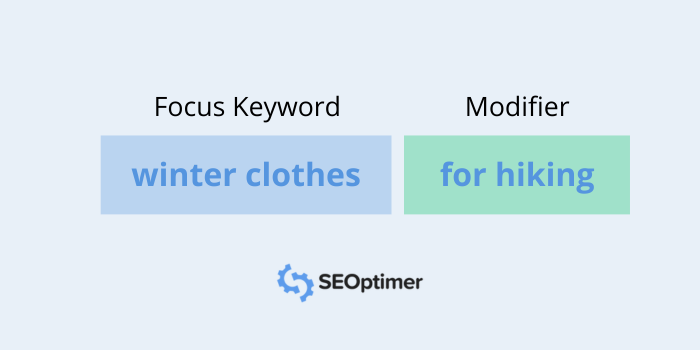
Conclusion
Understanding and effectively utilizing focus keywords is fundamental for SEO success.
You now have a good idea of what focus keywords are and how to find these keywords for your next blog post or page that you want to build.
By using some of the ideas and tools we shared in this post, you'll be able to use focus keywords to their maximum potential.










